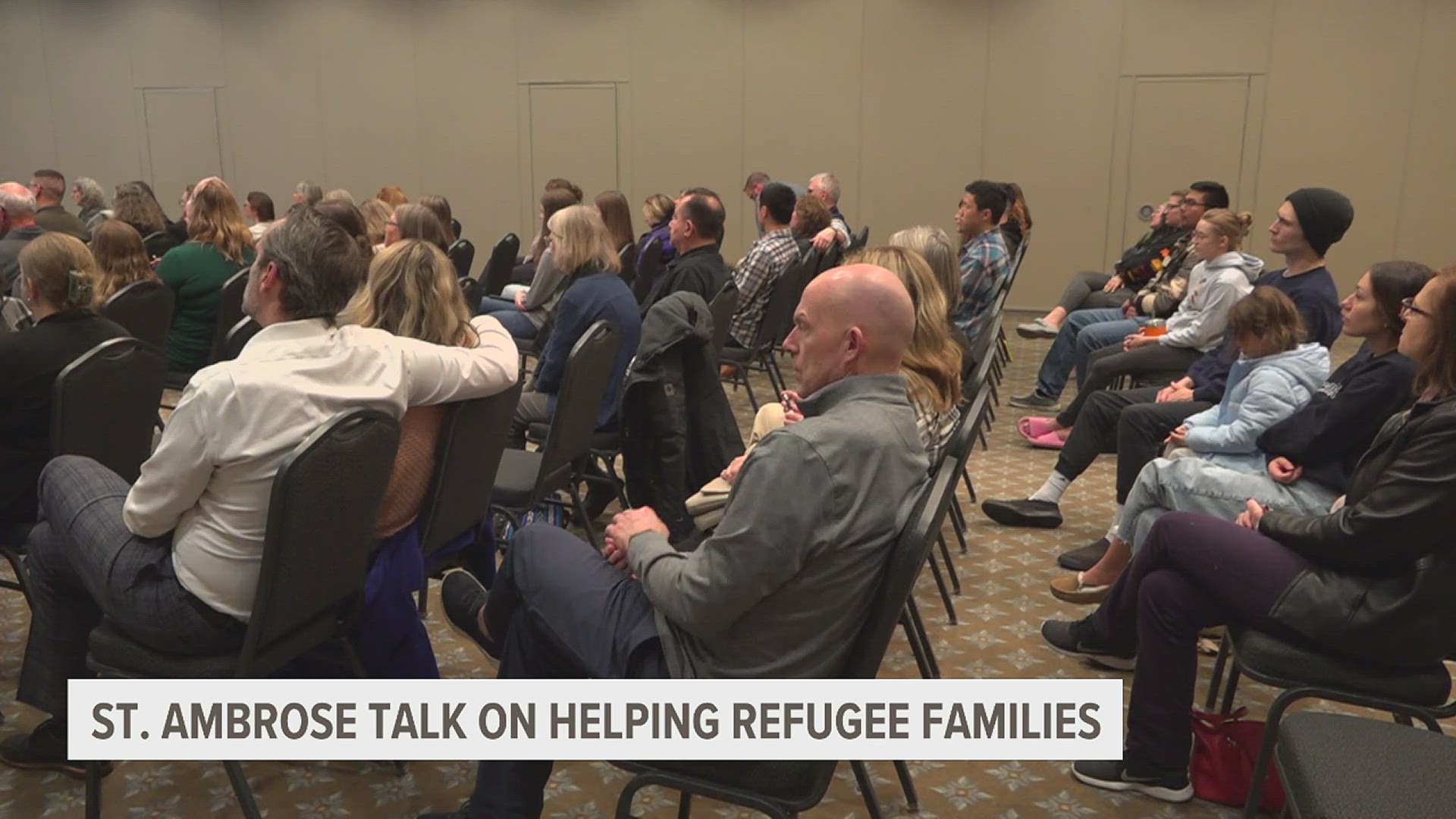DAVENPORT, Iowa — St. Ambrose University is part of a national group of college campuses that help refugees.
The program is called Every Campus a Refuge (ECAR), where colleges offer to house refugees on-campus while helping them find permanent housing. They also work with their local refugee aid organization to help the family with employment, learning English, and social services.
St. Ambrose formed their ECAR chapter in Fall 2023, making them one of 16 chapters in the nation. Since then, the school has been helping a refugee family of 8 people from the Congo.
Theology professor Matthew Coomber has been helping that family learn English.
"I can't imagine what it would be like to go to another country, find myself in another culture where I don't speak the language," Coomber said.
Coomber explained that he volunteered to teach English since he had prior experience teaching English in Japan.
"It can be very isolating to not be able to communicate with those around you, and it can be very intimidating to hear people talking around you and not know what's going on. So the sooner people can feel more comfortable with the language, the sooner they can engage with their community," he added.
First-year occupational therapy student Emma Janecek helps look after the kids once a week and helps ensure the family has the resources they need.
"These families are coming from places that are very far away, and they don't have the community that we have. So if we have access to that community, why would we not try to include them in it?" Janecek said.
On Thursday, Feb. 22, ECAR's founder Diya Adbo visited St. Ambrose to speak on her history as a second-generation refugee, why she founded the organization, and how the community can help refugees.
"Refugees are of course, incredibly resilient, and they come with a lot of internal resources — but in terms of material resources, it is a challenge," Adbo said.
Abdo is an English and creative writing professor at Guilford College in Greensboro, North Carolina. She founded the program in 2015.
"It's great for the campus community. When campuses do this, students are participating, faculty are participating," Abdo said.
Outside of the campus, Abdo said there's still ways people can help.
"It's time, it could be money, it could be furniture, but my recommendation is reach out and check in with your refugee supporting org, or your refugee resettlement agencies," she said.
According to Abdo, Every Campus a Refugee has helped around 500 refugees so far.

